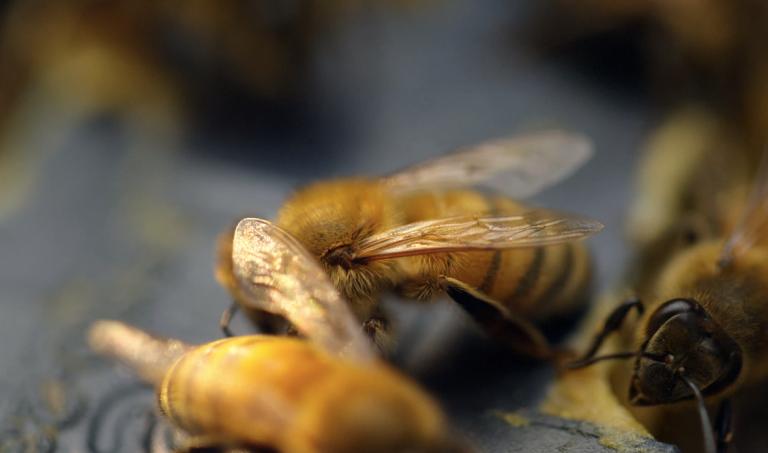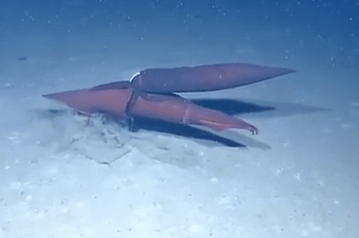Maybe it never occurred to you to wonder how deep-sea squids get laid. But it’s been an open and intriguing scientific question, apparently — one that’s now finally been answered, in a daring squid porno filmed by NOAA’s Okeanos Explorer.
To enhance the video, check out this hot squid erotica written by Smithsonian scientists:
Clearly visible connecting the dark-purple cephalopods is the white “terminal organ” or penis of the male, extending out through the male’s funnel. (A jet-propelled squid forcibly squirts water through its funnel, causing its body to shoot forward tail first.)
Let it never be said that the deep-sea squid is an ungenerous lover:
“One thing that surprised pretty much all of the cephalopod people was how long the mating process lasted,” Vecchione adds. “In this species the spermatophores inject sperm deep into the muscle of the female’s dorsal mantle. Because of this we guessed their mating was a really quick process in which the male darts in, shoots the female and then leaves. The video reveals it is a long process where the male is basically hanging on motionless for a long time. They were in that position when we first saw them in the video and they were still in that position when they swam away.”
In fact, they apparently get up to some pretty kinky positions:
“People have guessed how the terminal organ was used, but in some ways they guessed wrong,” explains Michael Vecchione, a research zoologist at the Smithsonian’s National Museum of Natural History and co-author of a new paper with H.J.T. Hoving of the Monterey Bay Aquarium, on this behavior in The Biological Bulletin. “We knew the terminal organ was located in the mantle of the male but we didn’t know that it projected through the funnel. The male was upside down, that also was surprising.”
And for good reason:
Possible reasons for the odd mating positions observed in this squid species, the researchers write, include preventing the female from grabbing and perhaps eating the male, as well as improving mobility of the terminal organ, which would be restricted if the male was not upside down.




